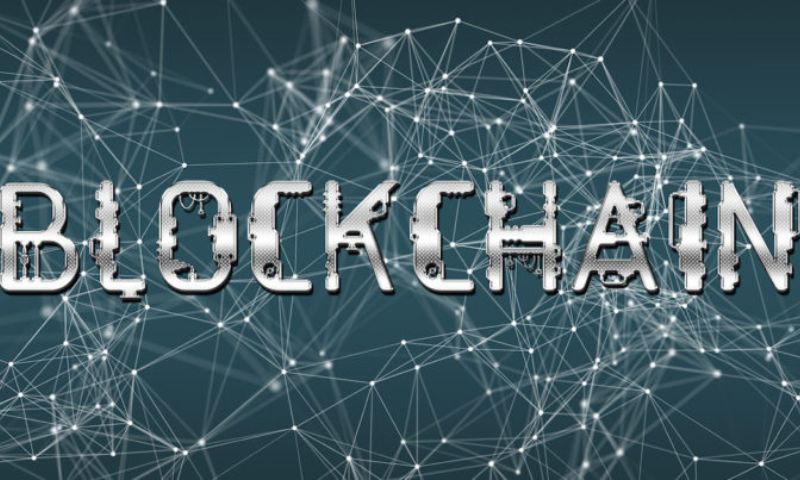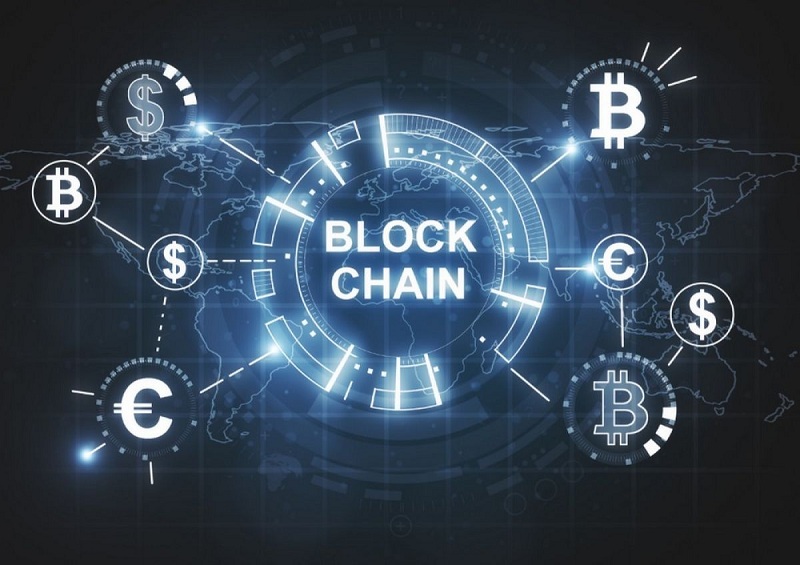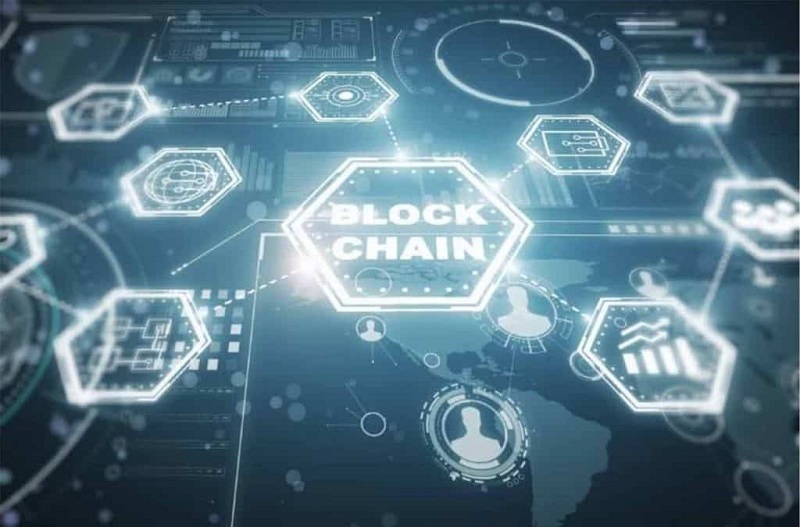Let’s cut to the chase: Blockchain applications beyond cryptocurrency are turning heads with their potential. From safer health records to smarter supply chains and secure identity checks, this tech is rewriting the rule book. Join me as we dive in.
Empowering the Healthcare Industry through Blockchain
Advancing Patient Care with Secure Medical Records Sharing
I’m here to talk shop about blockchain in healthcare. And not just any talk – the kind that might change lives. In the thick of patient care, doctors need fast access to health records. This isn’t just nice to have; it saves lives. Blockchain makes this happen. It lets doctors share medical records quickly, without risking privacy. It’s like having the key to a safe that only the right people can open: no prying eyes.
So, how does blockchain keep medical info safe? It breaks data into chunks, scatters them across many computers. To peek at your health info, you’d need to access all chunks at the same time. It’s tough, like herding cats. This means safety for your most personal info.
Some people ask if this tech is safe. The answer is yes. High precision, that’s what blockchain offers. More detail? Sure. Blockchain is made of super-smart math. This math is hard for bad guys to crack. But it’s easy for doctors you trust to look at your info.
Enhancing Privacy through Patient Consent Management Blockchain
Privacy, let’s face it, is a big deal. When it comes to health, it’s a huge deal. Everyone wants to keep their health details just to themselves and their doc. That’s fair. Blockchain steps in as a trusty middleman. It asks you for a nod before sharing your records. And it’s not just a one-time ask. Each time your info needs to go somewhere, it asks. Only after you say “OK,” things move forward.
Why is this good? You call the shots on who sees your health info. It’s not floating around for anyone to grab. And that peace of mind? Priceless.
Now and then someone wonders if they can trust this system. Well, you can. Why? Because blockchain doesn’t play favorites. It follows strict rules that need your “yes” before sharing info.
Blockchain in healthcare is not a fad. It’s a future we’re building right now. And it’s a strong one, set to make things better for patients and docs alike. Your health data is safe, and you’re the boss of it. That’s not just a promise; it’s a revolution, and it’s already begun.
Streamlining Supply Chains with Distributed Ledger Technology
Boosting Supply Chain Transparency with Blockchain-Powered Solutions
Supply chains can be tricky to manage. With blockchain, we can track goods easily as they move around the world. This keeps things clear and honest. If you buy a shirt, blockchain can show you where the fabric came from, where it was made, and how it got to you. This kind of trail cuts the risk of fakes and boosts trust.
Blockchain is like a ledger that everyone can see but no one can change by themselves, making it a tough nut to crack for anyone trying to sneak in false info. This means better food safety traceability. For example, if there’s a problem with some food, it’s easier to track down where it went wrong.
Supply chain transparency is not just big talk; it’s a way to make sure everyone involved, from the makers to the buyers, knows what’s up. Transparency means problems can be fixed faster, and customers can buy with confidence. With such clear benefits, it’s no wonder more companies are getting on board.
Automating Operations via Smart Contracts Implementation
Smart contracts are like autopilots for business deals.
They follow rules that kick in once conditions are met. For example, a smart contracts implementation can automatically pay a supplier once a delivery is made, no extra steps needed. This reduces mistakes and speeds things up, like a super-smart robotic helper that manages the boring paperwork without needing coffee.
In essence, smart contracts are game-changers for routine jobs. They can handle complex supply chain activities with less fuss, freeing people up to do more important work. Hospitals, stores, factories – you name it, they can all get a boost from these clever contracts.
In a way, smart contracts bridge the gap between tech and trust. They ensure deals are done right, without anyone having to keep an eye on them. It’s not just for the big players either. Small businesses can also make their lives easier by using this tech to deal with their daily chores.
And think about cross-border payments. These contracts can handle those too! Money moves across countries with less waiting, fewer fees, and no headache-causing red tape. It’s like sending an email instead of mailing a letter.
With blockchain powering supply chains, we’re looking at a future where what you buy is what you get, every single time. Transparency and smart contracts take away the worry, letting us focus on the good stuff, like enjoying our purchases or growing our businesses. This digital trust is what makes blockchain in supply chains not just cool, but crucial.
Fortifying Identity and Property with Blockchain
Establishing Trust with Blockchain for Identity Verification
In a world full of fake IDs and fraud, can blockchain make things safer? Yes, it can. It acts as a trusty guard for our digital lives. With blockchain for identity verification, we can prove who we are without a doubt. This tech stores our personal info in many secure places. This way, only we can say who gets to see it.
When we use the internet, we leave bits of our identity everywhere. With blockchain, we create a secure ‘digital locker’. No one can open it without our say-so. It’s a bit like a safe that needs a special key, and that key is ours alone. This keeps our info safe from prying eyes. Banks or hospitals can use our fingerprints or eyes to check it’s us. Thus, we stay in control, and sneaky identity thieves get left out in the cold.
Safeguarding Intellectual Property Rights Management
Now, how about our work and ideas? Here’s where blockchain steps in to protect them. It’s like a trusty watchdog for creators’ rights. If we write a book, make music, or invent something, blockchain helps us own it for real. It guards our work so no one can copy or steal it without asking first.
Creators use ‘smart’ bits of code, called smart contracts, to look after their works. These codes are rules written into the blockchain, making sure we get paid if someone uses our stuff. A musician’s song, a writer’s story, or an artist’s picture can live and be sold on this digital chain. Selling a song? The code tells us who bought it and makes sure they pay up. If someone tries to cheat, the blockchain spots it and stops them. No funny business allowed!
Blockchain keeps a sharp eye on who owns what and when. That means copycats can’t just swipe what’s ours. It’s good for them, too. They can be sure they’re getting the real deal. Not a knock-off. We get respect and rewards for what we make, and they get top-quality goods. That’s a win-win in my book.
With blockchain, we can trust that what’s ours stays ours. We keep control, can prove who we are, and hear that sweet ‘ka-ching’ when our work sells. We build trust, keep things open, and know our space is secure – all thanks to blockchain. It’s like having a superhero sidekick for our identity and creations. Cool, right?
Pioneering Blockchain in the Energy and Public Sectors
Revolutionizing Renewable Energy Markets via Blockchain
Blockchain isn’t only for digital cash. It’s changing the game in energy too. We’re seeing it make waves in how we handle green power. It’s simple, really—blockchain can make buying and selling renewable energy smoother. You might wonder, “How does it do that?” It’s through a system called peer-to-peer energy trading.
Imagine having solar panels on your roof. You’re soaking up the sun, making clean energy. It’s a great feeling, right? But sometimes, you make more power than you need. Instead of wasting it, blockchain lets you sell it directly to someone else. This means less waste and more savings for everyone. And here’s the neat part: every watt you sell, blockchain keeps track, safe and sound. This can push us all towards using more solar and wind power.
Now, some folks worry about hackers messing with the grid. That’s where blockchain shines! It’s very good at keeping data secure. Only people with the right permission can see or change the info. That means energy deals are locked down tight. It’s like having a super strong lock on your front door.
Blockchain also taps into something called smart contracts. These are like robot middlemen that make sure deals go smoothly. They check if you’ve followed the rules, then give a thumbs up for the trade to happen. It’s like making a pinky promise that can’t be broken. And this isn’t just talk. Real places are testing this out right now!
Increasing Civic Engagement through Blockchain Voting Systems
Now for voting, it’s getting a fresh spin thanks to blockchain. Gone are the days when people worry their vote didn’t count. Blockchain can change this. It offers a way to vote that’s safe and reliable. It’s like sending a text message that no one else can mess with.
Here’s how it could work: You go online, make your vote, and blockchain keeps it secret. It also makes sure it’s you voting – and not someone pretending to be you. And after that vote is in, consider it locked in stone. Nobody can change it. This is awesome because it means every voice gets heard, loud and clear.
The best bit? You don’t have to stand in line for hours just to vote. It’s all at your fingertips, fast and easy. And for places that are far away with no voting stations? This can be a game-changer. It brings democracy right to your doorstep.
So, when folks say blockchain is just for Bitcoin, tell them no way. It’s powering our homes with clean energy. It’s giving us a stronger voice in democracy. This tech is all about today and tomorrow – way more than just money. It’s like a super tool that can help fix some of our biggest challenges. The revolution is just getting started, and it’s super exciting to watch!
We’ve explored how blockchain goes way beyond just digital cash. From healthcare to supply chains, identity protection, energy, and even voting, blockchain’s power is massive. For your health, it means keeping your medical records safe and sharing them easily with doctors you trust. Businesses can now see where their products come from and how they reach you without hiding any secrets.
Your personal info and creative work get a digital lock and key, thanks to blockchain. Say goodbye to fakes and frauds! And let’s not forget, even the way we use energy and take part in our communities is getting a blockchain boost.
My final take? Blockchain’s not a sci-fi dream. It’s real and it’s changing our world right now. Let’s keep our eyes open for what’s next. We’re just getting started.
Q&A :
What are some of the most innovative uses of blockchain technology outside of cryptocurrency?
Blockchain technology has rapidly evolved beyond its origins in cryptocurrency. Industries such as supply chain management have harnessed the transparency and immutability of blockchain for tracking the production, shipment, and delivery of products in a verifiable way. In finance, blockchain facilitates smart contracts and decentralized finance (DeFi) platforms that automate and secure transactions without intermediaries. Healthcare systems use blockchains to securely manage patient records and verify the authenticity of drugs. Additionally, it’s being employed in fields like real estate for simplifying property transactions, in voting systems to reduce fraud, and in energy sectors for peer-to-peer energy trading and tracking carbon credits.
How are blockchain applications improving supply chain transparency?
Supply chain management benefits significantly from blockchain applications. By recording each step of the supply chain process on a blockchain, stakeholders can ensure that information is accurate and unaltered. This increased transparency helps reduce cases of fraud and counterfeiting, facilitates recalls, and ensures compliance with regulations. Blockchain can also provide consumers with traceability, allowing them to verify the authenticity and ethical sourcing of products. Companies like IBM have developed blockchain-based platforms such as IBM Food Trust that allow suppliers and retailers to track produce from farm to store shelf.
Can blockchain technology enhance data security and privacy in various industries?
Absolutely, blockchain can notably improve data security and privacy across multiple industries due to its inherent structure. The technology provides a decentralized ledger, which is harder to breach compared to traditional centralized databases. Encryption and cryptographic hashing on blockchains make data temper-resistant and secure. Privacy is also enhanced as blockchains can anonymize personal information while still allowing for data validation. This has applications in sectors like healthcare, where it could protect sensitive patient records, or in financial services, where personal financial information needs to be secured.
What role does blockchain play in the development of smart contracts?
Smart contracts are self-executing contracts with the terms of the agreement directly written into lines of code. Blockchain is integral to the operation of smart contracts as it provides a secure and immutable platform for these contracts to run on. Once predetermined conditions are met, blockchain-based smart contracts automatically enforce obligations without the need for intermediaries. This has revolutionized processes in industries such as real estate, legal services, and government operations, making transactions faster, cheaper, and less prone to errors or fraud.
In what ways is blockchain being used to facilitate secure electronic voting systems?
Blockchain technology is seen as a promising solution for creating secure electronic voting systems. By using blockchain, votes can be recorded in a way that is both anonymous and transparent. This helps prevent fraud and tampering while also simplifying the counting process. Moreover, blockchain’s distributed ledger makes it nearly impossible for any single entity to alter the vote count without detection. Estonia is a prime example of a country that has successfully adopted blockchain for this purpose, helping to improve trust in the electoral process and making it easier for citizens to vote.


